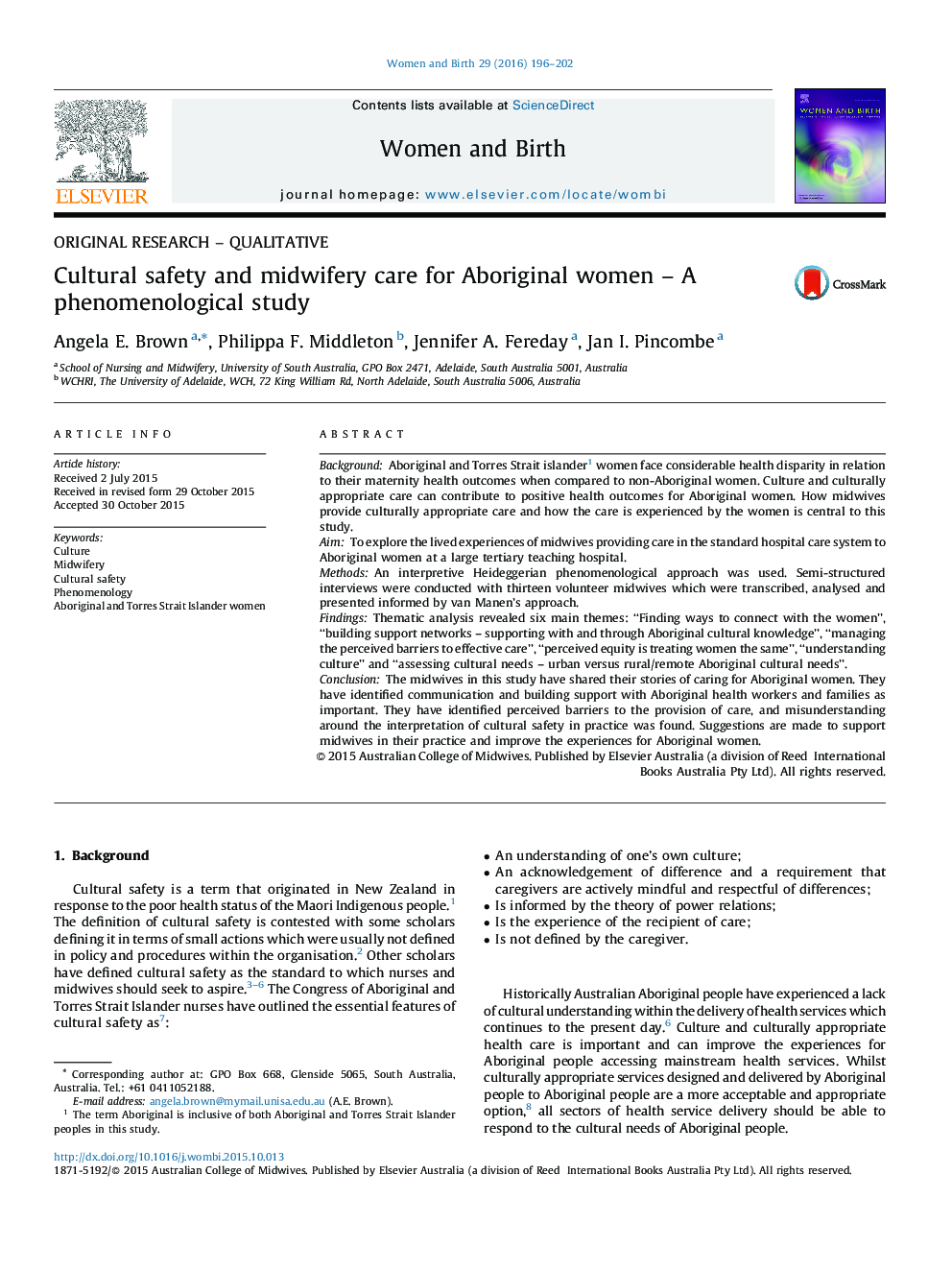| Article ID | Journal | Published Year | Pages | File Type |
|---|---|---|---|---|
| 2635865 | Women and Birth | 2016 | 7 Pages |
BackgroundAboriginal and Torres Strait islander1 women face considerable health disparity in relation to their maternity health outcomes when compared to non-Aboriginal women. Culture and culturally appropriate care can contribute to positive health outcomes for Aboriginal women. How midwives provide culturally appropriate care and how the care is experienced by the women is central to this study.AimTo explore the lived experiences of midwives providing care in the standard hospital care system to Aboriginal women at a large tertiary teaching hospital.MethodsAn interpretive Heideggerian phenomenological approach was used. Semi-structured interviews were conducted with thirteen volunteer midwives which were transcribed, analysed and presented informed by van Manen's approach.FindingsThematic analysis revealed six main themes: “Finding ways to connect with the women”, “building support networks – supporting with and through Aboriginal cultural knowledge”, “managing the perceived barriers to effective care”, “perceived equity is treating women the same”, “understanding culture” and “assessing cultural needs – urban versus rural/remote Aboriginal cultural needs”.ConclusionThe midwives in this study have shared their stories of caring for Aboriginal women. They have identified communication and building support with Aboriginal health workers and families as important. They have identified perceived barriers to the provision of care, and misunderstanding around the interpretation of cultural safety in practice was found. Suggestions are made to support midwives in their practice and improve the experiences for Aboriginal women.
